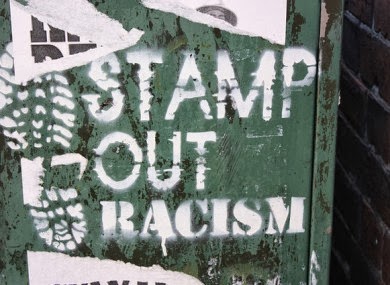By Kim Barrington Narisetti
January 28, 2014
@ http://economictimes.indiatimes.com/
My 12-year-old daughter gets exasperated easily. Maybe it’s because she’s 12. She gets even more exasperated because she says I seem to have a saying for everything: Patience is a virtue. You can catch more bees with honey than with vinegar.
Never judge a book by its cover. When you assume, you make an ass out of you and me. The last two seem to be the most relevant as they apply to racism and racist acts in India. It saddened me to hear about the recent attacks on Ugandan women in Delhi.
As a darkskinned African-American woman who lived in New Delhi for nearly four years, the stories quickly brought back memories of my daily experiences and the assumptions that were made about me and how I was treated. I constantly felt I was on display. I was stared at in restaurants, elevators and even in my car on the street.
Random people would come up to me when I was shopping at Khan Market (usually men) to let me know that they knew someone from Uganda, Nigeria, or the Congo. My response would be: That’s nice. I’m American. The most disturbing incident happened when my husband, Raju, and I were walking back home from a restaurant down the block from our house in New Friends Colony.
A young boy of about 8 was riding on the back of his bike with his father. As they passed us, he hurled a huge rock the size of a fist at me. It landed with a thud on my sunglasses and my head snapped back. If I weren’t wearing huge aviator sunglasses, I likely would have lost my eye. My chivalrous husband chased down the bike, pulled the boy off and gave him and his father a tongue lashing in Hindi and made him apologise.
The boy conceded that he threw the rock because he thought I was African. Therefore, his rock-throwing would certainly have been justified. Daily, I would have my cook pack up in foil any leftover breakfast, whether it were omelettes, idlis, crepes or just bread and butter. I would hand it out to the kids begging for food on the street on the way to my children’s school. When I rolled down the tinted window, the same kids who were begging for something to eat seconds earlier, would then proceed to laugh and point at me.
I easily could have gotten angry and refused to continue to do what I did or cower and have my driver do it instead, but I didn’t. That’s not the kind of person I am. They made assumptions about me and there was really nothing I could do about it. But the racist acts toward me also came at the hands of people who were obviously well educated, well-traveled and should know, well, better.
At the Oberoi Hotel in Rajasthan where we stayed when my family came to visit from Maryland, a boy started jumping up and down like a monkey and pointing in our direction as we were relaxing on the sofas in the lobby. His parents laughed. They stopped laughing when I went over to them and asked them what was so funny.
Surely they and their son had seen pictures of people who looked like me. Obama was my president; Will Smith was the biggest movie star in the world at the time (my apologies to Shah Rukh Khan); and “That’s so Raven” was one of the top kids’ shows on Disney in India.
Coming back to Delhi from the US after summer vacation, we were held up at customs by an official who turned my daughters’ OCI cards and my PIO card over and over and over again. The questions came fast and furious: How did we get it? How long have I been married? Where exactly in Hyderabad is my husband from. He stopped short of asking what could have compelled a Hyderabadi boy with a wheatish complexion to marry an African-American.
I drew the line when one of the men in the small crowd that had gathered proceeded to touch my youngest daughter’s hair and stroke the arm of my eldest. Did he think the colour would rub off ? Having visited India for 13 years as a tourist to meet my husband’s family and friends, before living in Delhi for the four years, I realise a lot of the behavior toward me and people who look like me stems from the infatuation that Indians have with light skin. Unless I told people I was American, the assumption was that I was African. But that is really neither here nor there.
Dark skin has a lot of negative connotations attached to it whether you’re Indian or of African descent, hence the bustling skin lightening market. I could only hope that attacks such as these don’t continue to happen. We recently celebrated Martin Luther King Jr’s birthday in America on January 20. He hoped that one day we would live in a nation where people will not be judged by the color of their skin, but the content of their character.
(Kim Barrington Narisetti is publisher of Urban Crayon Press. She also held editing positions at The Wall Street Journal, TheStreet.com; Advertising Age and The Source magazine.)

